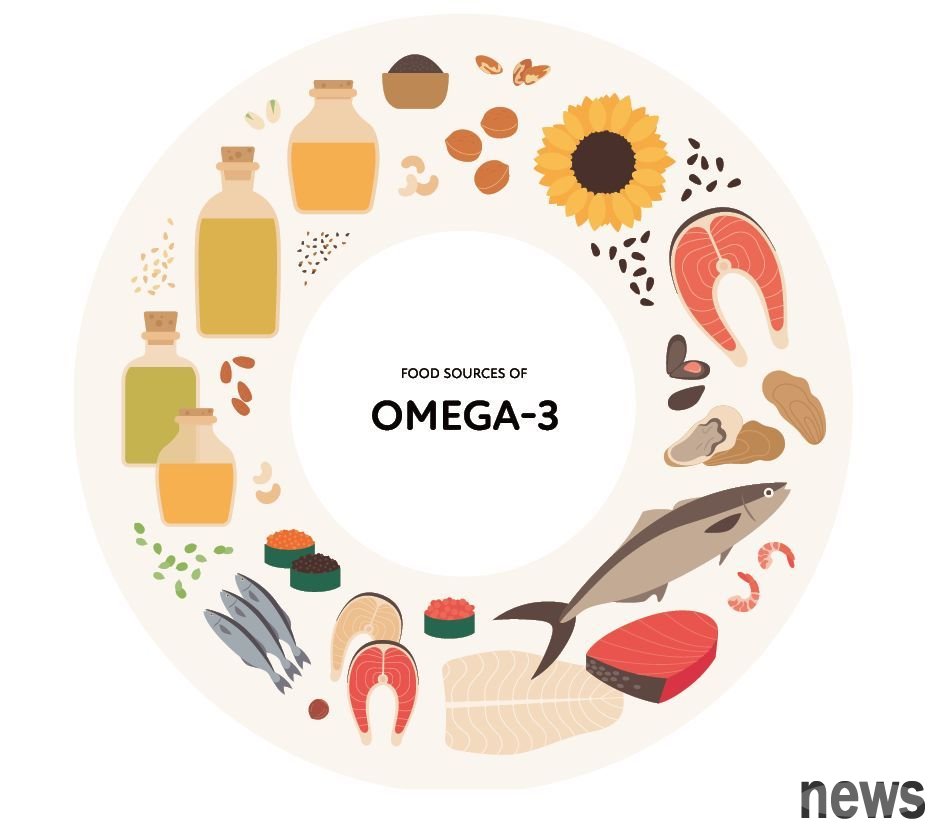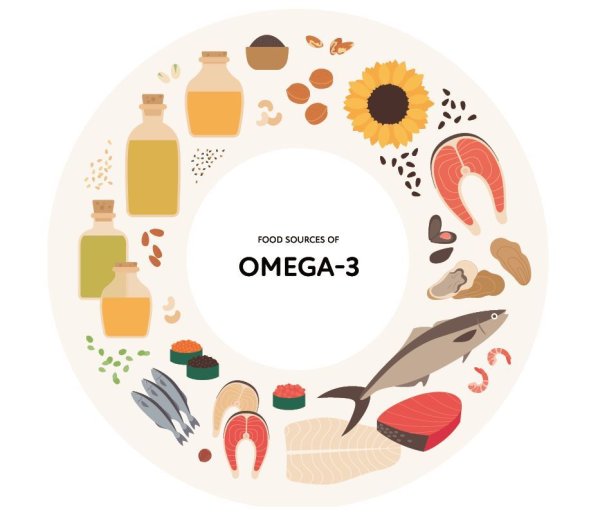Omega-3 fatty acids are much better, and you can see 7 major effects at one time! Eat more of these foods to supplement

When discussing healthy diet topics, natural foods rich in "Omega-3" always appear in the nutritional feed list without accidents. What exactly is Omega-3? What benefits can it bring to the human body?
What are fatty acids?The two main types of fatty acids are fat and fatty fat, and the fatty fat is further broken down into polyfat and fatty fat and single fatty fat,
{9 99}Fat and fat are sometimes called "bad" or "unhealthy" fats because they increase the risk of certain diseases such as heart disease and medium wind.
Discopic and fat, including polydiscopic and single-discopic and fat, are considered "good" or "healthy" fat because proper intake can support your heart health.
What is Omega-3 fatty acid?
Omega-3 is a polynomial and fatty acid that must be nutritious and cannot be produced by humans and must be obtained from food. Although Omega-3 is important, most people are underinvested. The three important Omega-3 fatty acids are:
. Docosahexaenoic acid (DHA). Eicosapentaenoic acid (EPA)
. α-Alaic acid (ALA)
DHA and EPA are mainly found in algae and fat-rich fish, such as fish, sardines and salmon, while ALA is mainly found in plant-based foods such as linseed oil.
When you get ALA from food, your body can convert part of ALA to EPA and then to DHA. However, this process provides only a small amount of EPA and DHA. Therefore, EPA and DHA-rich diet sources, such as fish meat, are of great importance.
What are the benefits of Omega-3 fatty acids for humans?Omega-3 fatty acids help all cells in the body develop the functions they deserve. They are important components of the cell membrane and help provide structure and support cell interactions. Although Omega-3 is important for all cells, they are high in the eyes and brain cells. In addition, Omega-3 also provides calories to your body and supports the health of many body systems.
1. Protect eye healthOmega-3, which is the main fatty acid that forms the eye and visual network. Women must not lack DHA during pregnancy and breastfeeding, otherwise it will affect the healthy development of fetal and baby eyes. In addition, sufficient Omega-3 can help reduce the incidence of plaque disease in elderly people.
2. Reduce physical inflammationMany chronic diseases such as heart disease, diabetes, cancer and inflammation are related to physical inflammation, so reducing physical inflammation can reduce the health risks caused by these diseases. Studies have shown that Omega-3 plays an important role in combating body inflammation. When the body breaks down Omega-3 fatty acids, it will use it to produce antioxidants and protect cells from damage.
3. Improvement of cardiac healthCardiovascular disease is a common factor in death. Omega-3 is believed to improve cardiac health and reduce cardiovascular disease development:
. Increase high density pyrosterol (HDL). Reduce low-density pyrosterol (LDL)
. Reduce triglyceride fermentation
. Reduce blood pressure
. Prevent the formation of plaques (depositions of fat, calcium and calcium) in the vein
4. Promote the health of the baby's brainOmega-3 is very important for brain development in the early stages of life. DHA is the main fatty acid in the brain that forms cell membranes. It is very important for women to get enough nutrients during pregnancy and breastfeeding and childhood.
5. Helps to improve autoimmune diseasesMany autoimmune diseases may be triggered or malignant by chronic inflammation, so reducing inflammation may help control symptoms and reduce disease progression. Autoimmune diseases are attacks by the immune system that they mistakenly believe healthy cells have problems. Research shows that Omega-3 may help reverse autoimmune diseases. Related diseases include:
. Wolf tragedy. polydisease
. Inflammatory kidney disease
. Osteopathy
. Class moisture-related inflammation
6. Preventing Alzheimer's diseaseSome studies have shown that Omega-3 can protect the brain during aging and reduce the risk of Alzheimer's disease.
7. Relieve depressionA 2019 study found that Omega-3 supplements containing EPA can help improve depression symptoms.
How to supplement Omega-3 fatty acids?It is recommended that this must be nutrients for foods rich in Omega-3. Generally speaking, Omega-3 from animals provides EPA and DHA, while plant sources mostly contain ALA.
The following are foods rich in Omega-3 fatty acids:
. Fish
.花花
. Autumn fish
. Sardine
. Sausage
. Produce leukemia
. Walnut
.花
. Fish liver oil
. Algae
. Chia seeds
. Agaricus seeds
. Agarichio oil
【














